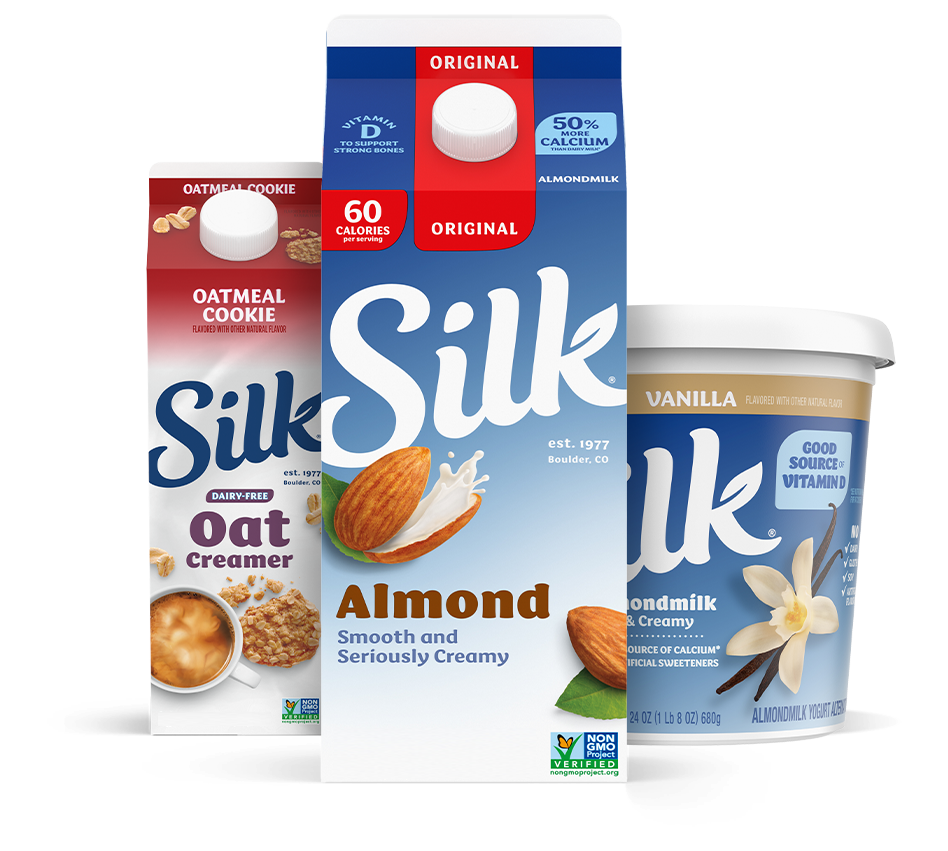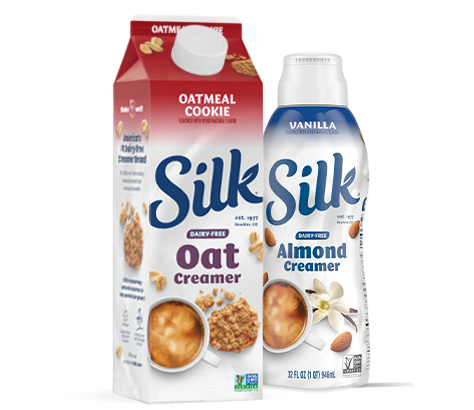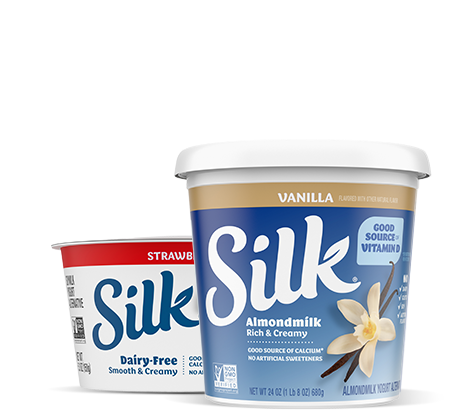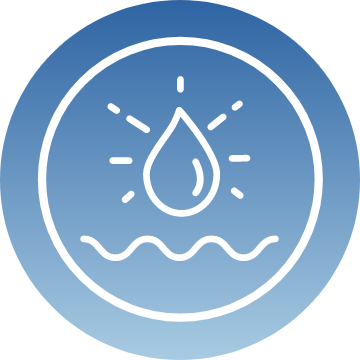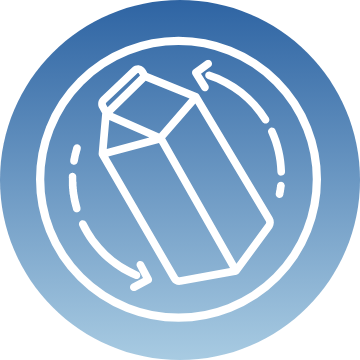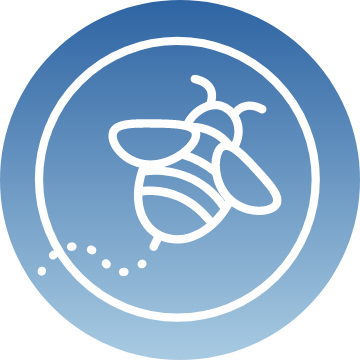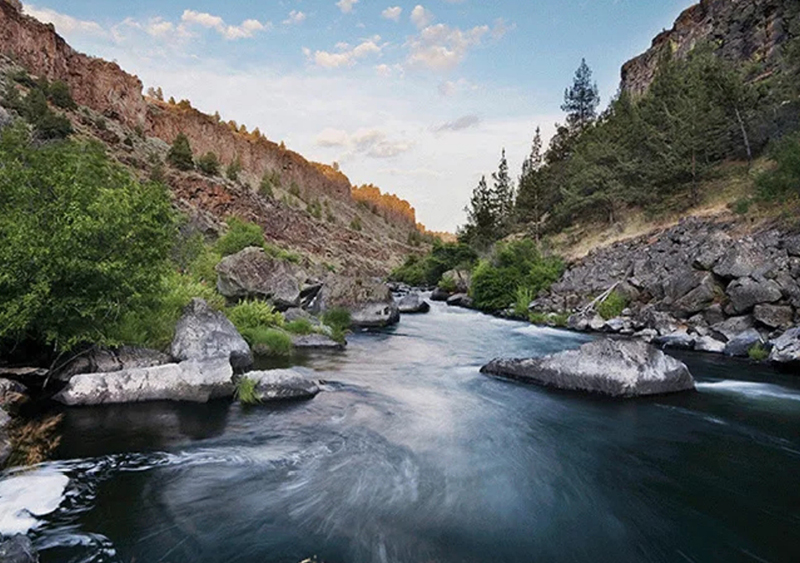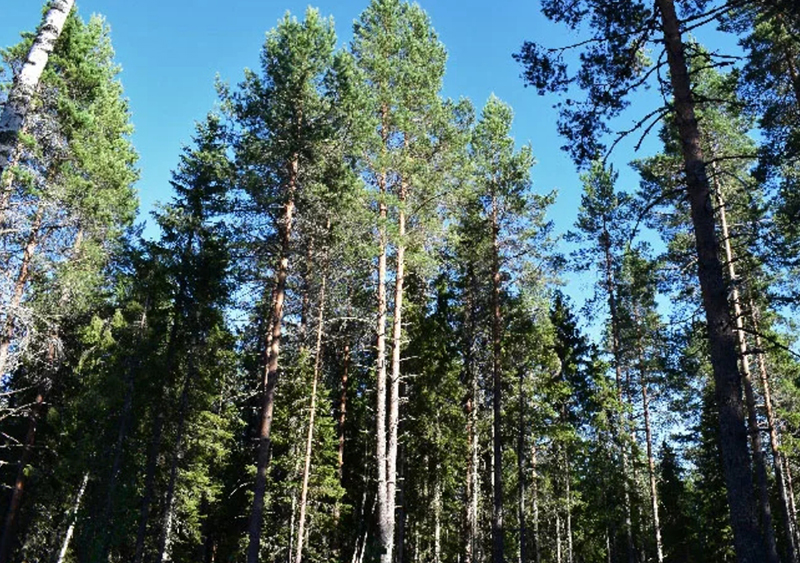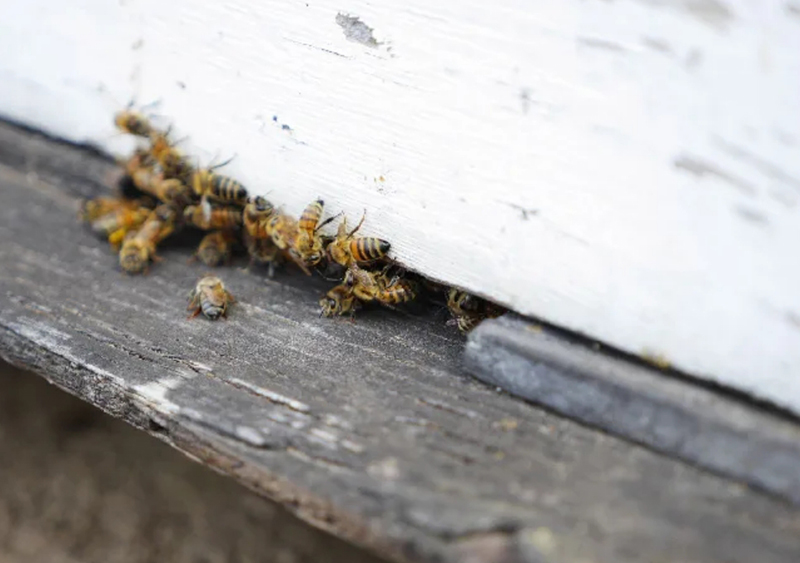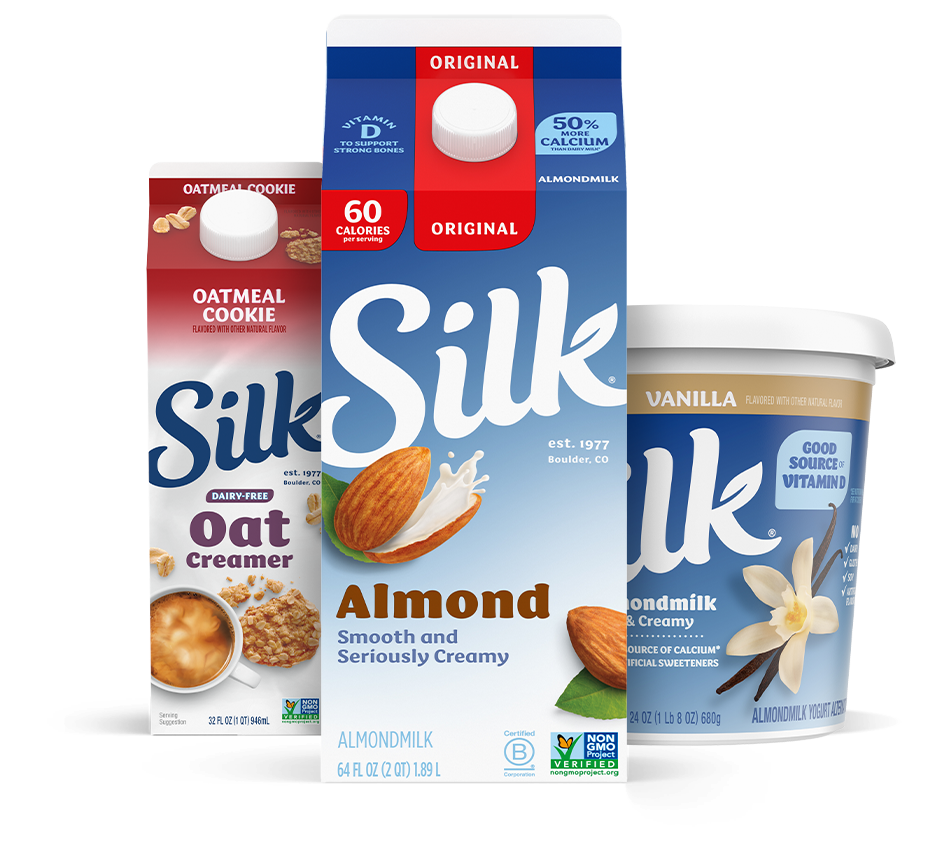Climate crises. A challenged food system. In a world calling out for change, we’re taking action. Like
supporting almond farmers
in
implementing
regenerative agriculture practices that work in
harmony with nature and help restore the land.
Silk plant-based beverages already have a lower
carbon footprint on average than US conventional dairy
milk.1 Our heart’s in the long game, which is
why we protect our planet through projects like
water restoration programs and manufacturing
with renewable energy.2
Photo by Robert Warren, provided courtesy of Bonneville
Environmental Foundation
Conserving water
We’re about more than that moment you crack open a carton of creamy Silk. (Don’t get us a
wrong, it’s a good moment.) But we care about more than that signature smooth taste. Take water, for instance. We balance all the water used in our owned
manufacturing facilities to make our products, restoring it back to nature. And
since 2009, Silk’s water partnerships—like our support for a groundwater recharge program in California, and our partnership with Change the Course to
help preserve the ecological health of the Colorado River basin—have
restored more than 11.6 billion gallons of water to freshwater ecosystems.3
Packaging & recycling
Think all cartons are the same? Think again. Sourcing matters. That’s why we’re actively working toward using only paperboard that’s certified by the Forest Stewardship Council to make our cartons. Cool, right? Learn more at us.fsc.org.
What about when you’ve enjoyed every last drop inside the carton? Well, the carton gets a second life—if you recycle it. All of our cartons are recyclable, as are our creamer bottles and yogurt alternative cups. Just follow the How2Recycle® instructions on the pack—and keep it out of the landfill. Find more details at how2recycle.info.
As part of our commitment to the planet, we’re aiming for all our packaging to be recyclable, reusable, or compostable by 2030.
Helping bees & other pollinators
Love our almondmilk? Thank a bee! Bees and
other pollinators make the food world go ‘round.
We have partnered with family-owned
orchards that supply our almond butter to
plant more than 250 acres of flowering, native California plants. In addition to supporting bees, these native plants also support songbirds, butterflies and other wildlife.
1 From ISO 14040/44/46 independently reviewed 2024 Life Cycle Assessment based on 2022 product data comparing cradle-to-grave footprint average of Silk plant-based beverage to US whole dairy milk. Average Silk footprint based on footprint of Silk conventional half gallon and 59 ounce beverages on the market as of September 2024, excluding almond-coconut blend, weighted by 2023 production volumes.
2 100% of the electricity used to manufacture our products at our owned facilities comes from renewable sources through purchasing RECs and sourcing from PPAs.
3 Silk is a charter sponsor of Change the Course, a Bonneville Environmental Foundation program, and over the last 14 years has supported more than 30 restoration projects, helping to restore over 11.6 billion gallons of water.

